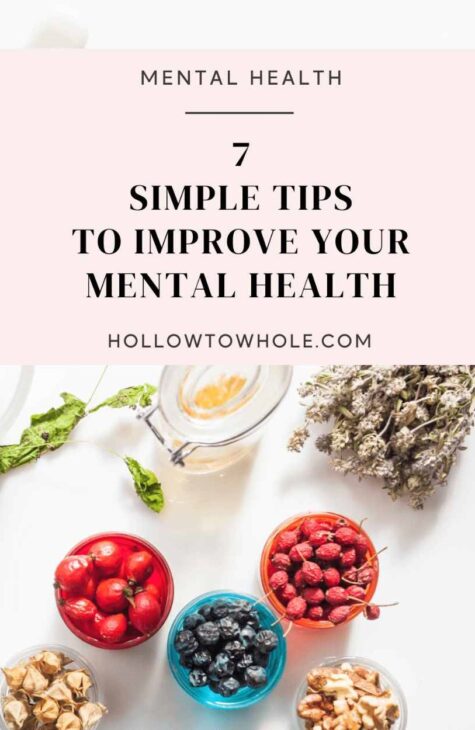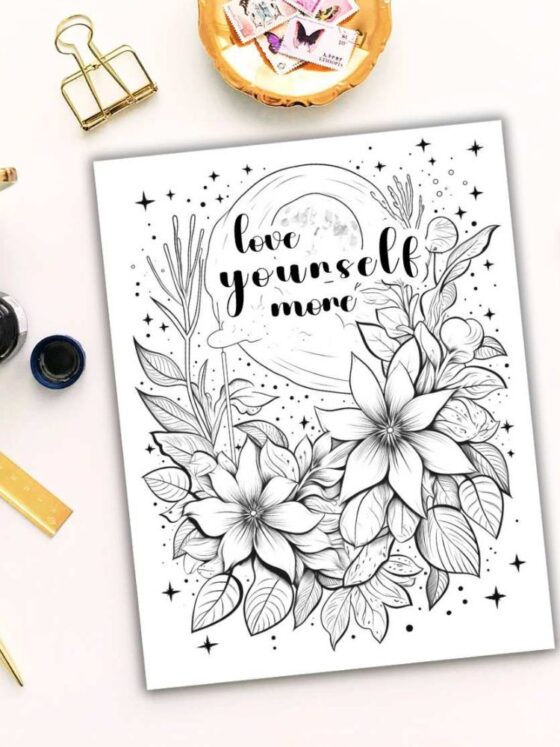When it comes to mental health, everyone has their own definition and techniques to improve it and that diversity is what makes mental health so special.
At all stages of life, beginning from childhood all the way through to adulthood, mental health is crucial at every stage.
What is Mental Health?
Mental health encompasses everything you do in life. It determines how you think, act and feel and it’s the governor on all the decisions you make.
Mental health includes your emotional, psychological and social well-being.
Everyone begins their mental health journey at a different place depending on various contributing factors. These can include:
- Biological factors (genes and brain chemistry)
- Traumatic experiences (childhood or unfortunate accidents)
- Drugs or alcohol abuse
- Negative social environments (poverty or bad influences)
You cannot control what happens to you and you cannot change the past but you can control the story you tell yourself and you can control how you react to it.

No matter where you are in life, you can always make improvements by putting your mental health first.
During the pandemic, mental health was put in the spotlight. We experienced how it feels to lose that connection with someone when simple gestures like hugging could be fatal, and the constant fear of what’s lingering in the air we breathe.
It has become a priority for many people as we realize how crucial it is for our well-being.
Here are 7 simple tips to improve your mental health:
Save this pin for later!

Disclosure: This post may contain affiliate links. If you click and purchase, I may receive a small commission, at no extra cost to you. As an Amazon Associate I earn from qualifying purchases. Learn more here
7 Simple Tips To Improve Your Mental Health
1) Exercise
As a human, you are an emotional creature and everything you do is based on how you feel at the time or how you anticipate to feel when the action is taken.
Physical activity can improve your mental health by releasing endorphins which can completely change your mood.
Endorphins are natural pain killers designed by your brain for your body. These hormones help relieve pain and creates a feeling of happiness.
Whether it’s going for a run outside or working out at home, exercise is the antidote to almost anything in life. Whenever you’re feeling low, going to the gym can always help you feel better.
How you can do this:
- Join a gym membership
- Start a walking group
- Play your favourite songs and dance like nobody’s watching!
2) Spend Time in Nature

Since the beginning of time, humans and nature have had a symbiotic relationship. We depend on nature just as much as nature depends on us.
From providing us with precious healthy foods to gifting us with every breath of fresh air we take, nature has a very majestic way of making us feel whole.
Research in areas such as ecotherapy has evidence on the profound benefits of nature exposure to our mental health.
These include reducing anxiety, creating a sense of calmness, boosting creativity and helping us bond during social interactions.
Nature activities can also be gardening at a community plot, caring for indoor houseplants and going for walks along a trail.
How you can do this:
- Start your own garden
- Volunteer for a conservation project
- Enjoy views from walking, hiking or cycling on trails
Save money on groceries, live holistically and improve your mental health with your very own backyard garden
Breathe. Let go. And remind yourself that this very moment is the only one you know you have for sure.
Oprah Winfrey
3) Drink More Water
Drinking more water might sound like an overly simple tip but sometimes it’s the simplest things in life that give us the greatest rewards.
Being dehydrated goes much deeper than just having a dry mouth and maybe a smelly breath. The somewhat 30 trillion cells in your body depend on water to maintain their cell shape.
Water ensures that all the parts inside the cell have the correct molecular shape which is vital for biochemical processes.
Dehydration is known for the impacts on the brain as it is made up of over 70% water.
When you’re dehydrated, the brain cannot function properly which can negatively affect your mental health, leading to an increase feeling of depression and anxiety.
How you can do this:
- Keep your water bottle on you everywhere you go
- Use a habit tracker
- Place water bottles all around your environment
4) Unplug From Technology
We cannot deny the way social media has changed our lives. Businesses have grown exponentially and individuals have been connected in a way we never could have imagined decades ago.
However, there is a dark side to social media as well.
The most common emotion while scrolling through social media is depression.
Even though you’re so connected to everyone and everything, there’s an internal dialogue that compares what the people you see on Instagram are doing to what you are not doing.
This creates a feeling of emptiness and sadness when you compare yourself to what you see on social media. Unplug from technology to give yourself a mental break.
How you can do this:
- Set a time limit on your device
- Turn off your phone completely for a whole day
- Do more physical or outdoor activities
Related post: 5 Tips For Having A Healthy Relationship With Social Media

5) Get Enough Sleep
The more we learn about sleep, the more we realize how important it is to our mental and physical health.
If you’ve ever been sleep deprived, you know how difficult it is to get things done. Being sleep deprived also creates more feelings of anxiety and depression.
Getting enough sleep benefits your brain health, boosts your mood and can help control unhealthy eating habits. It can have a positive affect on memory and decision making as well.
How you can do this:
- Follow a consistent sleep routine
- Use blue light blocking glasses
- Turn off devices at a certain hour for deep, restful sleep
6) Do Something for Someone Else
Similar to exercising, volunteering to do something for someone else can also release endorphins in the brain and creates a sense of well-being.
As humans, contribution is an important aspect of living a happy life. When you help someone, especially those who cannot do anything for you in return, you feel good about yourself.
That action creates a “helper’s high” feeling and your brain begins to crave it even more, leading you to take another action to help another person.
As you help other people, you also help yourself. It’s a win-win situation!
How you can do this:
- Volunteer for a cause
- Write a thank you note for someone you appreciate
- Offer to pay for a stranger’s meal
Related post: 5 Simple Ways To Practice More Gratitude
7) Get Professional Help
There are going to be trying times in life that will put your mental health to the test.
Fortunately, we now live in a world where the stigmatism of mental health has been lifted enormously. It’s okay to ask for help.
Sometimes, it’s necessary and it’s the only way to improve your mental health.
Getting professional help for your mental health takes courage and there is nothing to be ashamed of.
When you heal yourself, you offer a part of you that can help someone else on their journey.
Maybe your story is exactly what someone needed to hear to help them on their journey.
How you can do this:
- Try online therapy like BetterHelp
- Browse government websites for resources and services
- Ask your doctor for a referral to see a specialist
Thanks for stopping by 
What are some things you do to improve your mental health? Share them below!

Save this pin & tap the ❤️ below!















